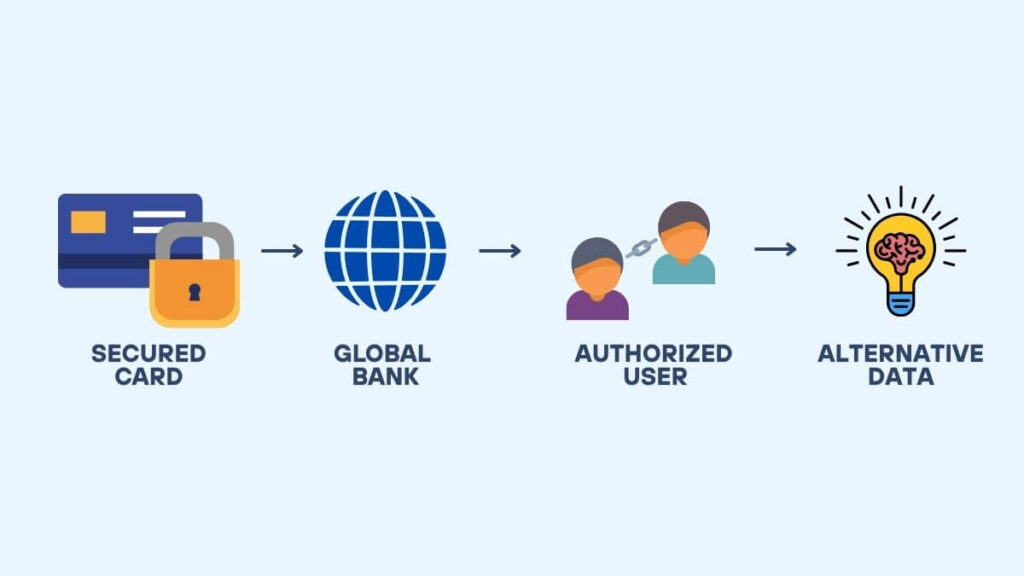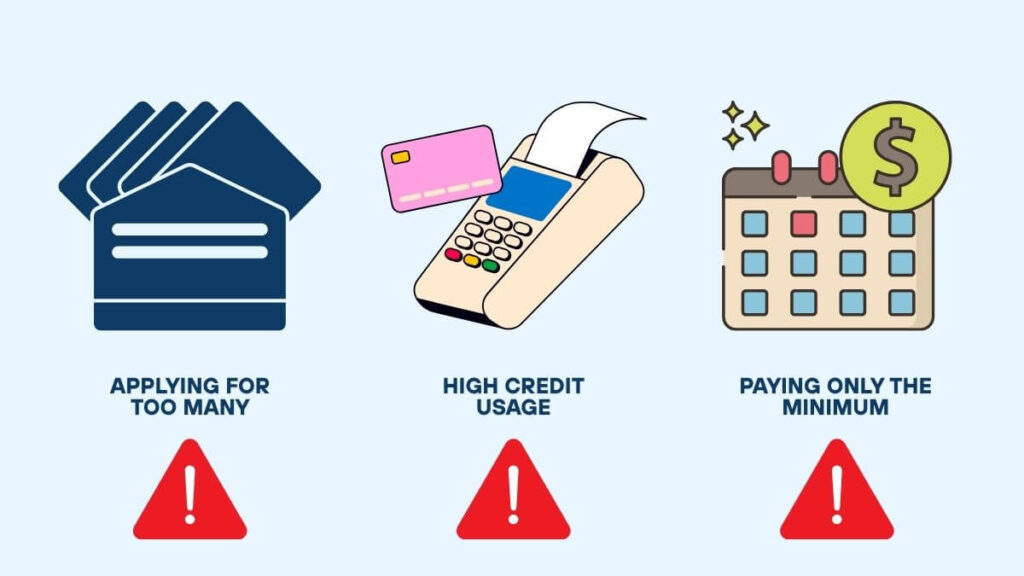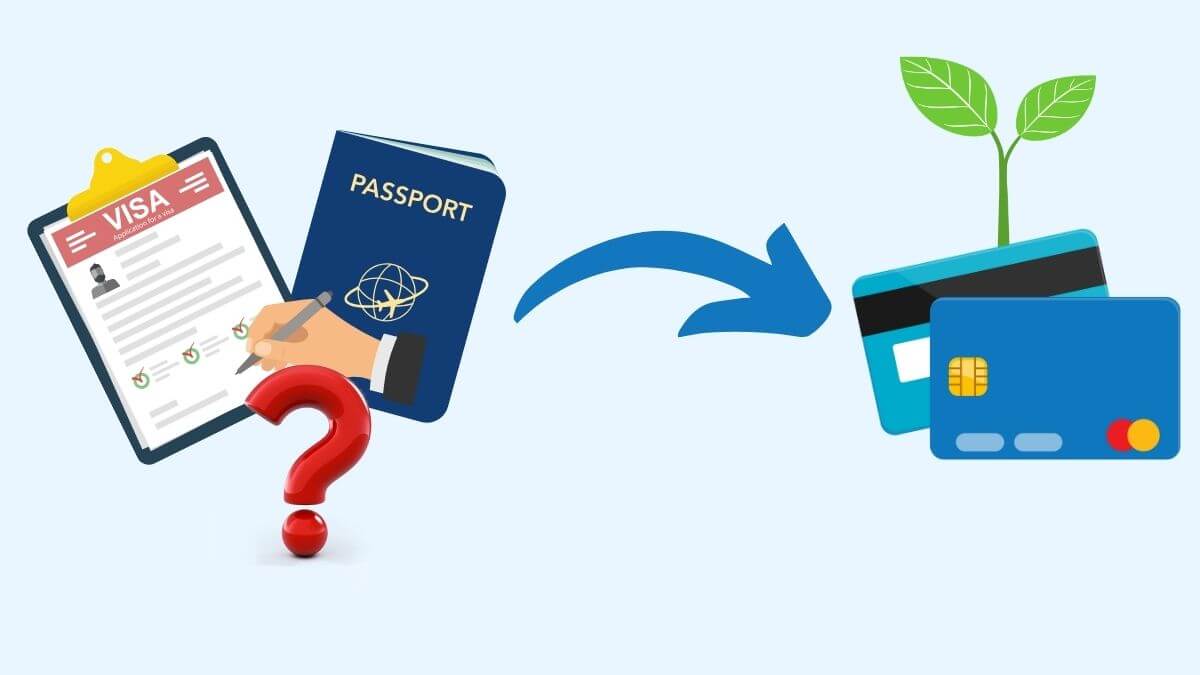Introduction
Let’s take a wild guess. You’ve spent hours on Google, seen a dozen different Reddit threads, and clicked through a handful of confusing pages from big banks. It’s overwhelming. One person says one thing, another says the opposite, and all you want is a straight answer.
There’s almost nothing more frustrating than knowing you were financially responsible back home, only to be treated like a ghost in the American system. You want to get a simple credit card, but you’re met with the classic catch-22: “Sorry, you need a credit history.”
In this post, we will share the exact steps required to get a US Credit Card as new immigrant in 4 simple ways. Here, we set out to give you an easy-to-follow guide to getting your first US credit card.
Why You Need a U.S. Identity Number (SSN or ITIN)
The first thing to understand is that the U.S. financial system can’t “see” your history from another country. You are starting with a blank slate, which is why you’re considered “credit invisible.”
To even apply for a card, you need a way to identify yourself in the U.S. tax system. This means getting one of two numbers.
Social Security Number (SSN)
If you’re authorized to work in the U.S. (for example, on an H-1B, L-1, or other work visa), you’ll be able to get an SSN. This is the most common key to unlocking financial products.
Individual Taxpayer Identification Number (ITIN)
In case you do not qualify to receive an SSN and still need to file U.S. taxes, the IRS can issue an ITIN.
Our Expert Insight: Don’t worry if you only have an ITIN! A few years ago, this was a significant roadblock; however, many major banks have since updated their policies to accept ITINs. Your options are better than ever.
4 Best Options to Get a US Credit Card as New Immigrant
Now for the action plan. Our team has helped thousands of newcomers get started, and these are the four most effective and reliable paths you can take to get started.

| Strategy | Approval Odds | Key Requirement | Best For |
| Secured Credit Card | Highest | Refundable Cash Deposit | Almost every newcomer. |
| Global Bank Relationship | High | Existing account with a global bank | Clients of Amex, HSBC, Citi, etc. |
| Become an Authorized User | High | A trusted person with good US credit | Those with reliable family/friends. |
| Use Alternative Data | Good | Steady income & US bank account | People with good finances but no file. |
Start with a Secured Credit Card
If you remember only one thing from this guide, make it this: a secured credit card is your golden ticket. We recommend this path for over 90% of newcomers. It’s simple. You provide the bank with a refundable security deposit between $200 and $500. That deposit amount then becomes your credit limit. Because your own money “secures” the loan, there is almost no risk to the bank, which is why approval odds are so incredibly high.
The magic part? The bank reports all your payments to the credit bureaus every month. After about 6-12 months of paying your bill on time, you prove yourself to be reliable, and the bank typically refunds your deposit and upgrades you to a regular, unsecured credit card.
“I moved to Texas from India last year and was rejected for every card. I felt stuck. I read a guide like this and applied for the Discover it Secured with my ITIN and a $300 deposit. I got approved! Six months later, my first FICO score is 680 and they just refunded my deposit. It actually works.“
– Vijay Patel
Global Bank Relationships
If you bank with American Express, HSBC, or Citibank back home, call them! They have programs that can use your existing international relationship to approve you for a U.S.-based card.
Becoming an Authorized User
Suppose you have a spouse, family member, or very close friend with a long, positive U.S. credit history. In that case, they can add you as an “authorized user” on their card. You’ll get a card with your name on it, and that card’s good history can give your credit file an instant boost. Word of caution: Only do this with someone you trust completely.
Using Alternative Data
Some modern lenders, such as Petal, can analyze your income and bank account information to approve loans, thereby bypassing the need for a traditional credit score.
3 Common Mistakes New Immigrants Must Avoid
We want you to succeed, so please avoid these common pitfalls that we often see people encounter on their journey.

Applying for Too Many Cards
Every application can cause a slight, temporary dip in your score. Don’t panic and apply for five different cards after one rejection. Start with one targeted application.
Using Too Much of Your Credit Limit
It means that a higher risk will be present with the use of a high percentage of the available credit. To be safe, your balance should be less than 30 percent of your limit.
Paying Only the Minimum
As a way of maintaining good credit, make sure to pay your entire statement balance before the due date to save on high interest rates.
FAQs about 4 Proven Ways to Get a US Credit Card as New Immigrant
What is the easiest credit card for a non-U.S. citizen to get?
Without a doubt, a secured credit card is the easiest. Because you provide a cash deposit, the bank takes on minimal risk. The Discover it® Secured and Capital One Quicksilver Secured are two of the most welcoming options.
Can an immigrant get a credit card without an SSN?
Yes. Big banks, such as Capital One and Bank of America, now allow you to apply using an ITIN instead of an SSN.
How long does it take for a new immigrant to build a credit score?
It typically takes about six months of consistent payment history to generate your first FICO credit score. Once a lender starts reporting your account activity, it takes at least six months for the scoring models to have enough data.
Do you need a green card to get a credit card?
No, you do not need a green card (permanent residency). You can get approved while on various non-immigrant visas as long as you have a U.S. address, a U.S. bank account, and an SSN or ITIN.
Is it a good idea to get a secured credit card?
Yes, it is an excellent idea for anyone new to credit. It is a powerful and low-risk tool designed specifically for building a credit history from scratch.
Conclusion
It may seem like a heavy load. Still, you can simplify it by focusing on a few simple testimonials. Get an SSN or ITIN and open a bank account in the US, and apply for a secured card. Only use it to make small purchases and pay it off fully each month.
Using this guide, you will not only be purchasing a piece of plastic, but you will also be setting up the entire basis of your financial life in the United States. You are in the driver’s seat, getting that invisible credit score on the road and making it an excellent visible score.
We would appreciate hearing from you. Which way will appear appropriate in your case? Write about them or ask your questions in the comments!


